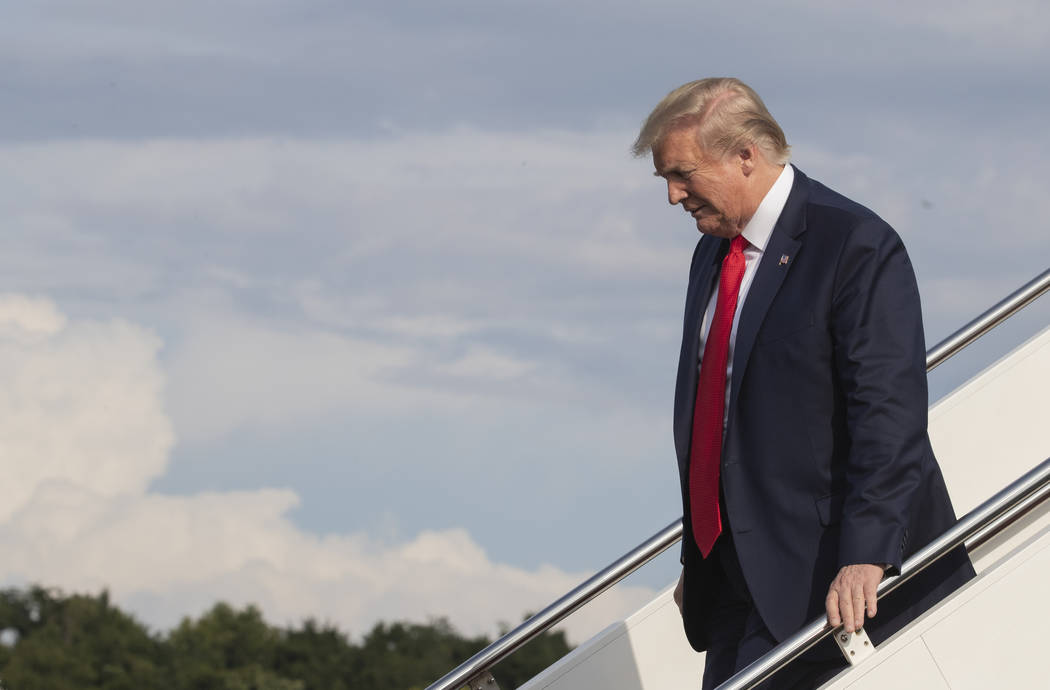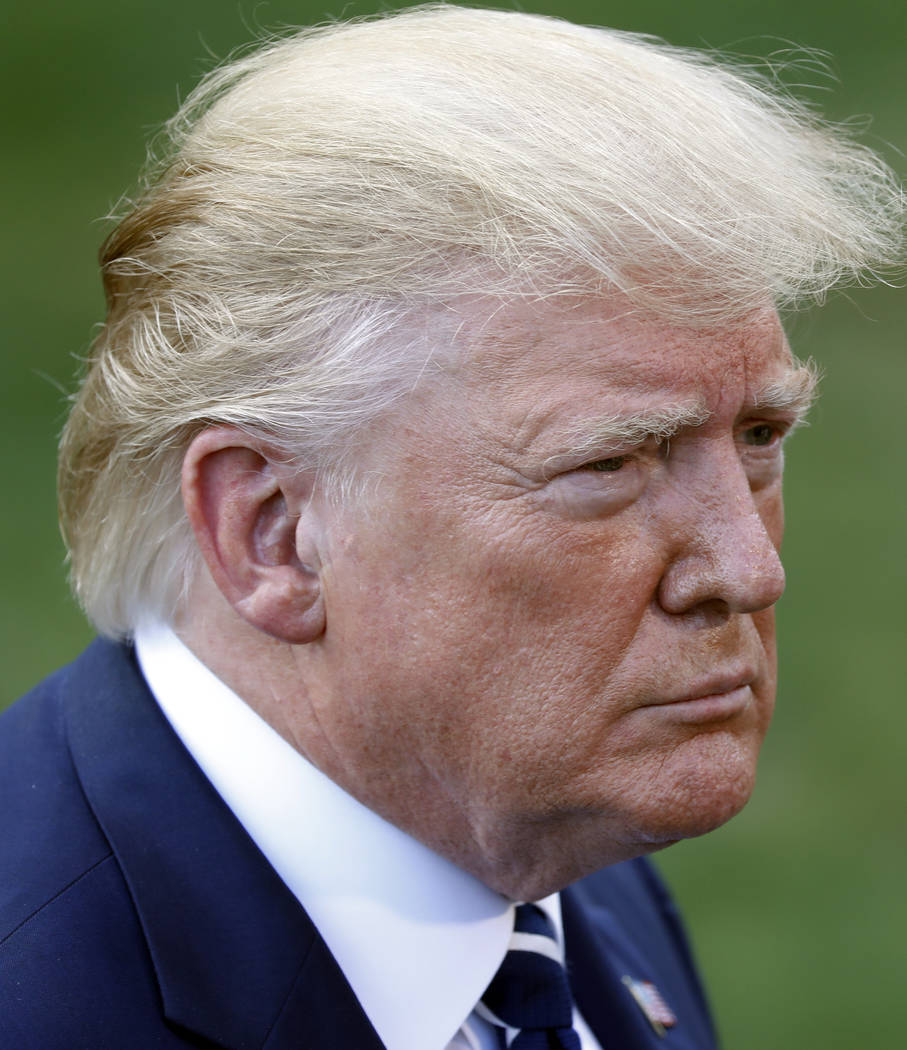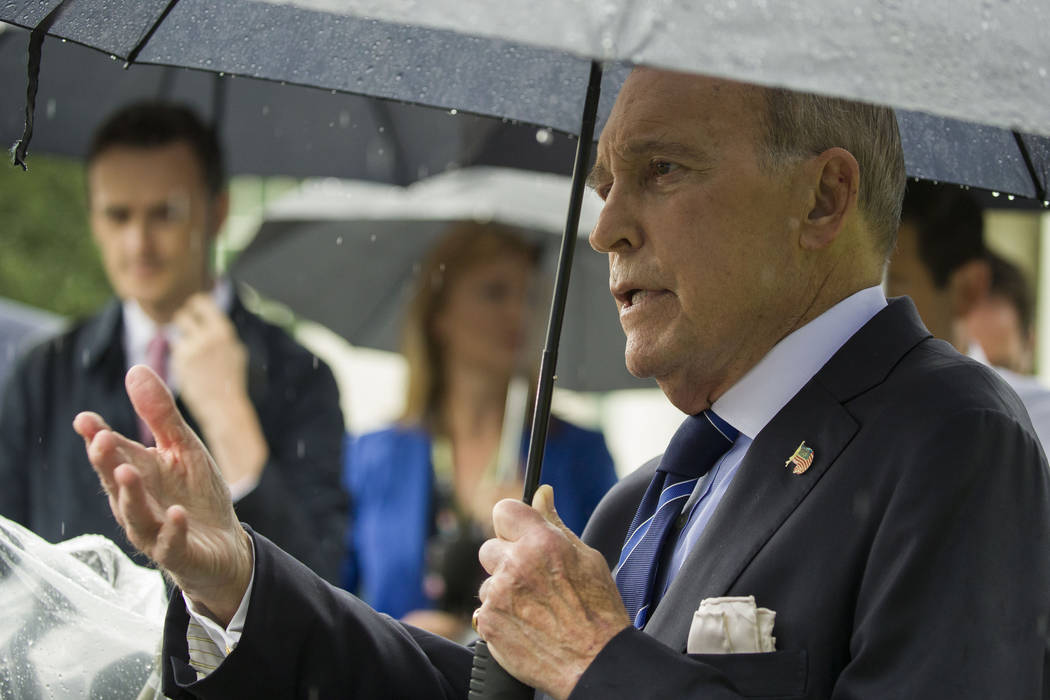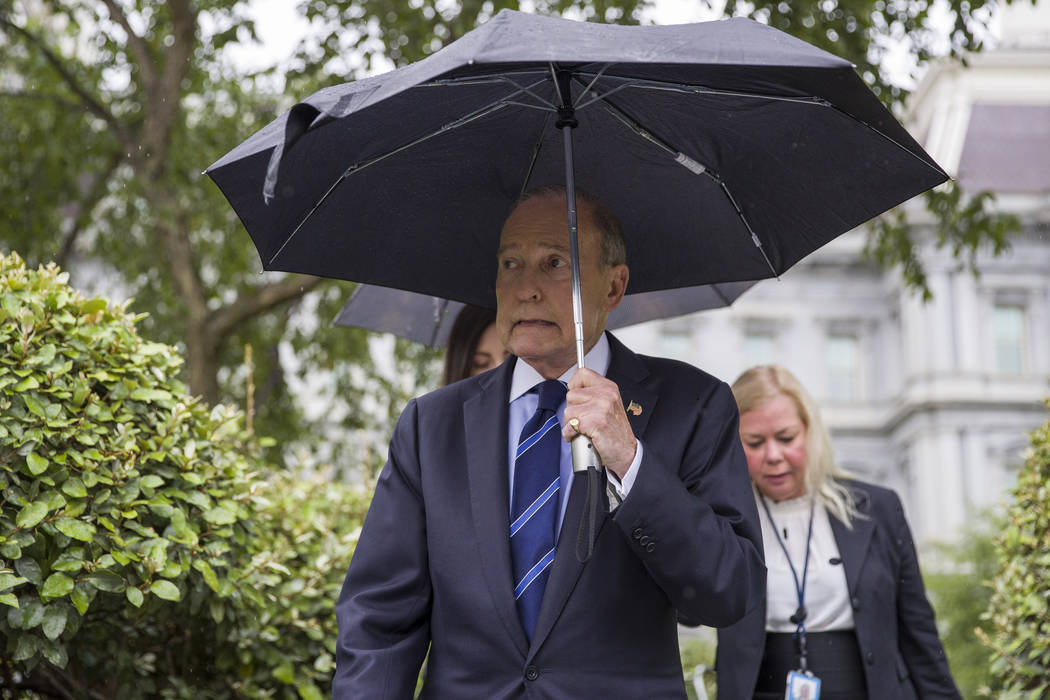Budget hawks hate debt deal
WASHINGTON — For President Donald Trump, the debt-ceiling deal negotiated with Democrats in Congress on Monday was a win because it means there will be no government shutdown this fall — and there was no poison-pill provision to bar added funding for border security and military spending.
For House Speaker Nancy Pelosi and Senate Minority Leader Chuck Schumer, it was a win because the package means no government shutdown and an additional $100 billion more for their domestic priorities over the next two years, they said in a statement.
But for taxpayers, their children and grandchildren, the pact might not be such a bargain.
“Everybody getting what they want is not bipartisan compromise; it’s irresponsible policymaking that harms the next generation,” said Michael Peterson, CEO of the Peter G. Peterson Foundation.
The House is expected to vote on the measure Thursday.
This year’s deficit is on track to exceed $1 trillion, and budget crunchers expect deficits surpassing the $1 trillion mark for every year Trump is in the Oval Office, whether or not he is re-elected. The national debt is more than $22 trillion.
Maya MacGuineas of the Center for a Responsible Federal Budget expects the deal to lift discretionary spending limits by $320 billion over two years, which means an increase in overall government spending. Add it up, and that could be another $2 trillion in projected debt levels over the next decade, MacGuineas cautioned.
While Senate Majority Leader Mitch McConnell, R-Ky., and House Minority Leader Kevin McCarthy, R-Calif., support the package, some Republicans are not on board.
Budget ‘abomination’
Sen. Mike Braun, R-Ind., signaled on CNBC’s “Squawk Box” that he will vote against the package, saying he is fed up with Washington finding “every gimmick you can to avoid what any CEO, any CFO, would take on as a challenge, and accomplish it. … Here we are $22 trillion in debt, trillion-dollar deficits, and we’ve got this abomination coming across.”
In March 2018, when Trump signed a $1.3 trillion spending bill that boosted the deficit, he said, “There are a lot of things I’m unhappy about in this bill. There are a lot of things that we shouldn’t have had in this bill, but we were in a sense forced if we wanted to build our military. I said to Congress, I will never sign another bill like this again.”
Braun cited that pledge on CNBC.
White House economic adviser Larry Kudlow told reporters Tuesday that the deal “isn’t everything we hoped for, but it got through the debt ceiling. That’s so important. We’re not going to default on American securities.”
While Kudlow would prefer to see deficit reduction, he maintained that the spending hikes are “pretty modest” — not game-changers. And, “if your 10-year treasury (bond) is running at 2 percent, that tells you the bond market is not really concerned about the fiscal situation at the present time.”
Marc Goldwein, policy director for the Center for a Responsible Federal Budget, does not see the package as a done deal. “It’s much more likely to pass than not, but I’m not sure it’s going to be a done deal,” he said.
“It’s possible a lot of Republicans will oppose this,” although when they controlled the White House and both houses of Congress, “there was not a lot of interest in cutting spending,” Goldwein said.
The conservative House Freedom Caucus came out against the package. “All sides should go back to the drawing board and work around the clock, canceling recess if necessary, on a responsible budget agreement that serves American taxpayers better — not a $323 billion spending frenzy with no serious offsets,” the group said in a statement.
Nevada votes in favor
Nevada lawmakers were pouring over the details ahead of Thursday’s vote.
“I’m probably going to end up supporting this,” said Rep. Mark Amodei, the only Republican in the Nevada House delegation. The package is good for defense spending, but also, “if you’re a debt or deficit person, it’s not good news,” Amodei said.
“You have to make a series of value judgments, whether you like it or not,” Amodei added. Because of the need to avoid a shutdown, “the politics win out this time. There’ll be some no votes, but it will pass.”
Rep. Susie Lee, a Democrat, intends to vote yes on the bipartisan budget caps and debt limit deal and appreciates the bipartisan problem-solving approach that Congress and the White House took toward this agreement.
“This deal rejects harmful cuts to critical programs like Medicare and Social Security, ensures our military service members have the resources they need to keep Americans safe, and secures critical funding for domestic priorities like the K-12 education, opioid abuse prevention, and resources for our veterans,” Lee’s press secretary, Jackson Wessells, said.
Contact Debra J. Saunders at dsaunders@reviewjournal.com or 202-662-7391. Follow @DebraJSaunders on Twitter.
White House response
"President Donald J. Trump is pleased to have reached a bipartisan compromise with Congressional Leadership on a two-year budget and debt ceiling deal. The agreement includes absolutely no poison pills. This compromise will continue the rebuilding of our great military and ensure our veterans receive the care they deserve. Both the House and the Senate should quickly move this deal to the President's desk for signature"
— White House Press Secretary Stephanie Grisham






















